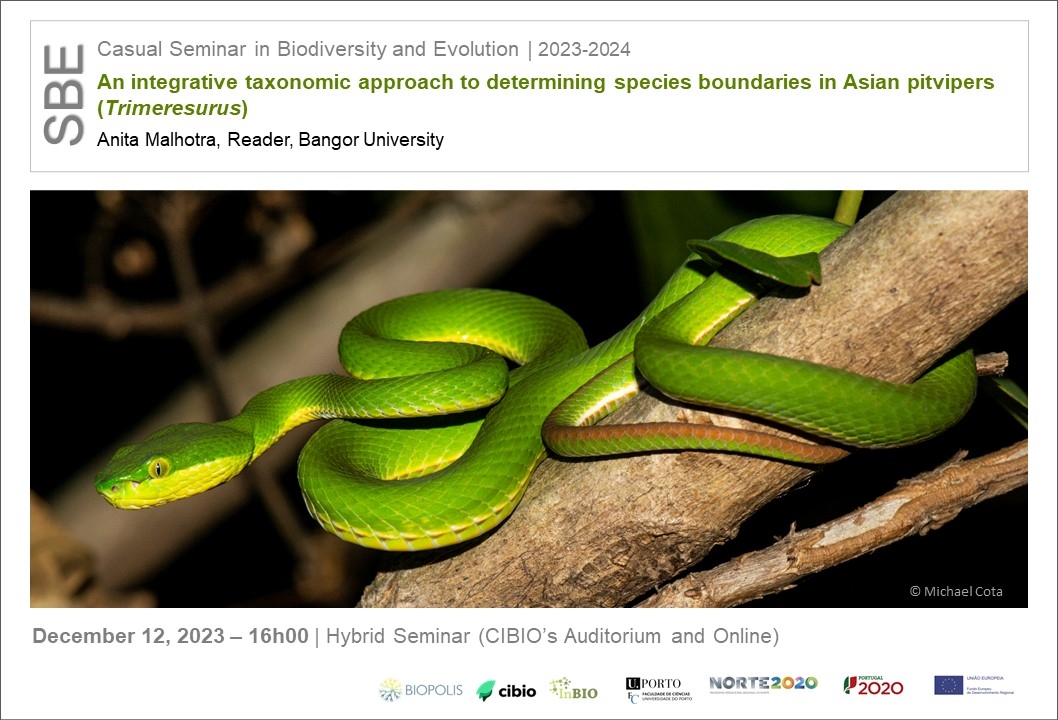An integrative taxonomic approach to determining species boundaries in Asian pitvipers (Trimeresurus)
12 Dec 2023 - Anita Malhotra, Reader, Bangor University | 16h00 | Hybrid Seminar

CASUAL SEMINAR IN BIODIVERSITY AND EVOLUTION
While substantial advances have been made in recent years in elucidating the phylogeny and systematics of pitvipers, phylogenies of the Asian representatives are still predominantly based on mitochondrial loci, and many species have been described on the basis of a very limited geographic sampling and an emphasis on colour pattern differences. This not only leaves their validity open to question but also fails to meet the needs of medical and conservation practitioners for whom the distribution of species is vital information. In this talk I will describe the analysis of a geographically comprehensive dataset collected over a 30-year period, in one of the most wide-ranging groups (Trimeresurus), with a focus on the iconic white-lipped pitviper (Trimeresurus albolabris). The data includes morphological (including biometric, meristic and categorical characters) and molecular (including both mitochondrial and nuclear loci), often from the same individuals. Mismatch between morphological groups and molecular clades is found in a broad region stretching from Myanmar across northern Thailand, south-western China and Southern Laos and Central Vietnam, suggesting hybridization between eastern and western groups. Notably, many of the recently described species in this complex are situated in this region of overlap, underlining the need for a more rigorous approach to species delimitation.
Born and brought up in India, Anita Malhotra moved to the UK in her mid-teens. After obtaining a BA in Zoology from Oxford University and a PhD in Evolutionary Biology (population evolution and adaptation in Anolis lizards) at the University of Aberdeen, she began her specialist research focussing on a revision of the systematics of Asian pitvipers. This work was based on the integration of multiple methods including field collection, multivariate morphometrics and DNA phylogenetics, and led to a radical shift in the systematic arrangement of the group at both species and generic level. As a result of the extensive fieldwork underpinning this research, she developed a large network of collaborators in many Asian countries. Collaboration has also been very important in the study of venom evolution in these species. In more recent years, she has shifted focus to using her research skills and background on venomous snakes to addressing the human suffering and death toll that these snakes can bring, particularly in India.
[Host: Fernando Martínez-Freiría, Phenotypic Evolution - PHENEVOL]